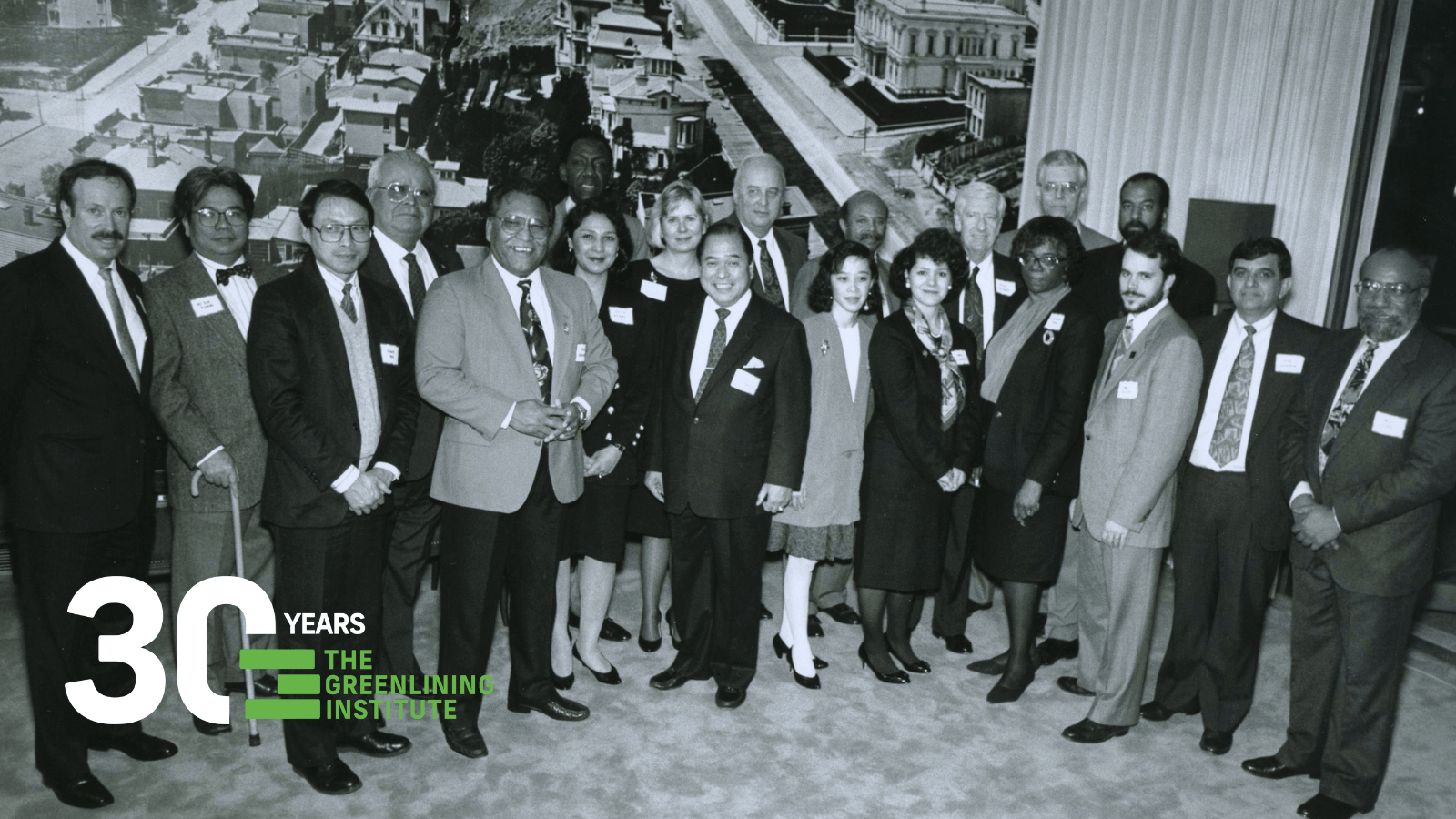We Haven’t Built Back Better, But There’s Still Time for California

Last week, in his State of the State Address, Governor Newsom talked about the California Way: finding new solutions to big problems and leading the nation. He also said “California is doing what we have done for generations, lighting out the territory ahead of the rest, expanding the horizon of what’s possible.”
CALIFORNIA HAS BEEN A LEADER IN SO MANY WAYS, AND MUST CONTINUE TO LEAD DESPITE THE ENORMITY OF THE CHALLENGES FACING US.
Because, let’s face it: after a global pandemic that brought everything to a halt, we haven’t built back better.
Climate change and climate disasters continue to worsen at an alarming rate. Our healthcare system is still broken with fault lines that existed long before COVID, which are now gaping holes in access and quality. And, the racial wealth gap is growing larger every year due to the lasting legacy of redlining and exacerbated by COVID.
Tackling these issues won’t be easy and will require bold leadership, even as the Legislature faces unprecedented uncertainty.
The 2021-2022 Legislative Session is the second term of a two-year term. The second year of a legislative session is always a bit of a question mark. But this year is even more complicated. For starters, it’s an election year which always shakes things up. We’re also seeing the impact of redistricting, which will take effect next session and has already forced some members to reconsider running for reelection. Most impactful, however, is that 26 legislators will not return next session–the largest turnover the Legislature has seen at once.
While it remains to be seen what this will mean for this session, one thing is clear – the California Legislature must continue to pursue transformative policies. While we may be coming out of the pandemic, its impacts will reverberate for years to come.
Last year was big: Governor Newsom signed a massive $3.7 billion climate budget bill to help California fight climate change and cope with its increasingly dangerous effects. The bill also included promises for future funding for key programs–promises that the legislature and the Governor must deliver on this year. The Assembly also adopted an equity resolution (HR 39), committing lawmakers to incorporate an equity impact analysis into their lawmaking process.
However, Governor Newsom and the Legislature failed to leverage the historic budget surplus to make long-term equity investments like punting on the creation of an Office of Racial Equity.

This year, Governor Newsom announced his plans to spend the massive $45.7 billion revenue surplus on crucial state programs that will benefit historically underserved communities including low-income people and communities of color. The governor’s proposal outlines a COVID-19 response and relief package such as small business support, a solid affordable housing strategy, workforce training and job opportunities, universal health care access and expanded reproductive health care, and a transformative climate action package, building on last year’s $3.7 billion commitment.
WE WERE VERY PLEASED TO SEE THIS FORWARD-THINKING BUDGET PROPOSAL THAT BUILDS ON THE PROGRESS MADE LAST YEAR AND SUGGESTS THAT WE CAN ACHIEVE EVEN MORE THIS SESSION.
From policies that will help advance economic equity, to prioritizing vulnerable communities in the fight against climate change, The Greenlining Institute applauds much of what is in the Governor’s budget proposal.
But we need more:
- Create an Office of Racial Equity: The Greenlining Institute urges the Legislature and Governor’s office to allocate at least $40 million to fund the establishment of a statewide Office of Racial Equity, consistent with SB 17 (Pan). While this Administration and Legislature has demonstrated a strong commitment to equity, without the state infrastructure to create, staff, and implement these programs, we cannot maximize their impact.
- Pass the Automated Decisions Systems Accountability Act (AB 13): Among the first legislation of its kind in the country, the Automated Decisions Systems Accountability Act (AB 13) will protect Californians from biased and inaccurate automated decision systems by requiring algorithmic accountability for “high-risk” public sector algorithms that impact Californian’s legal rights, employment opportunities, health and access to economic opportunity.
- Support the California Justice40 Act (AB 2419): Building on the promise of Justice40, a federal initiative with a goal of delivering 40% of the benefits of climate and infrastructure investments to disadvantaged communities, AB 2419 would require a minimum of 40% of funds received by the state under the federal act to be allocated to projects that provide direct benefits to disadvantaged communities and a minimum of an additional 10% to be allocated for projects that provide direct benefits to low-income households and low-income communities.
To advance a true equity agenda, the budget should:
- Increase funding for Zero-Emission Vehicles Package – $8 billion total
- Allocate funding to Eliminate Utility Debt – $2 billion total
- Increase funding for Community Resilience Centers – $500 million total
- Increase funding for Low-income Weatherization Program – $75 million total
- Increase funding for Urban Community Forestry and Urban Greening – $175 million total divided evenly between both programs
- Funding Housing as a Climate Strategy Package – $1 billion total
- Make good on the commitment made last year to fund these crucial climate resilience programs:
- Regional Climate Collaboratives – $10 million
- Transformative Climate Communities – $165 million
- Allocate $50 Million to the California Public Utilities Commission’s California Advanced Services Fund Adoption Account to fund community outreach and enrollment efforts.
- Increase Capacity Building Funding for the DFPI’s California Consumer Financial Protection program.
- Offer more Small Business Support: The addition of $150 million to cover a significant number of the 150,000 unfunded California Small Business COVID-19 Relief Grant applications will provide a substantial safety net for many of the state’s most vulnerable small businesses. We also support allocating $32 million to improve and expand technical assistance to small businesses.
- Increase Broadband Access and Close the Digital Divide: California should dedicate at least $50 million towards recapitalizing the California Advanced Services Fund Adoption Account to fund community broadband outreach and enrollment efforts.
In response to COVID-19, the Governor and the Legislature enacted transformative policies like an eviction moratorium to protect families, direct money to California residents, expanded unemployment benefits, and free transit among other policies. Our elected officials proved that they can act quickly with far-reaching impacts to support residents in need, and we should be proud of California’s leadership. However, we cannot return to business as usual. We have said this from day one and we’re saying it today, two years later:
EQUITY IS A PRACTICE AND IT’S TIME TO ROLL UP OUR SLEEVES AND GET TO WORK. COVID ISN’T OVER AND NEITHER ARE THE LINGERING, LONG-TERM IMPACTS ON COMMUNITIES OF COLOR AND LOW-INCOME COMMUNITIES.
We still need transformative change and bold policies that build on the progress we’ve made. We still need visionary leaders who will make good on their promises.




